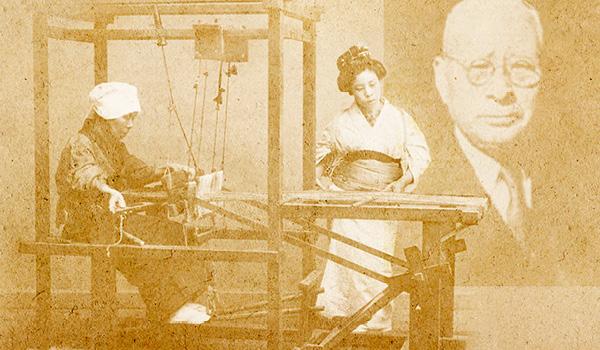17 Jul 2017
Michio Suzuki – a name woven into Suzuki’s history

Born in a village in Nezumino-mura, Enshu region, Japan on 18 February 1887, young Suzuki grew up picking cotton and later worked as an apprentice in a loom factory. When electric power became more commonly available, demand for looms increased and in 1908, 21 year old Michio decided to go out on his own. He turned the silkworm house his family gave him into a workshop and made a loom from wood and iron for his mother. Its innovative design allowed her to weave ten times faster than before.
Word soon got around and with orders pouring in; the young inventor established Suzuki Loom Manufacturing in October 1909. One of his strengths was that Michio always listened to his customers in order to improve the quality of his products:
"Always think from your customer's point of view. Provide whatever your customer needs."
This was incredibly forward-thinking at the time. Through talking to weavers, he made hundreds of improvements and applied for dozens of patents. He won prizes and accolades and demand continued to increase. In 1930 he began exporting the revolutionary Sarong Loom and the Suzuki name went international.
However, Michio was always looking for more opportunities to apply his skills and in 1937 he realised people needed a small, affordable car. A prototype was developed with an 800cc liquid-cooled, four-stroke, four-cylinder engine – revolutionary for its day. It had a cast aluminium crankcase and gearbox and generated 13hp (9.7 kW).
WWII put things on hold, but in the post-war years, there was an even greater need for affordable, reliable transportation. Suzuki's answer was a bicycle fitted with a motor called ‘the Power Free’. This new ‘motor-bike’ was so successful, by 1954 Suzuki was producing 6,000 per month and had changed its name to Suzuki Motor Co Ltd. An even more successful automobile followed; the 1955 Suzulight. With front-wheel drive, four-wheel independent suspension, and rack-and-pinion steering, it was decades ahead of its time.
From then on Suzuki continued to build an international reputation for making small, reliable, and efficient engines. Vehicles that are affordable, easy to service and fun to use. These values still drive the company, and are perhaps even more important today as we strive to increase efficiency and protect our precious environment.
Michio passed away in 1982, but we will always remember it was his “Yaramaika spirit”, the challenging and innovative spirit of the Enshu region that put Suzuki at the forefront of automotive manufacturing and technology.
